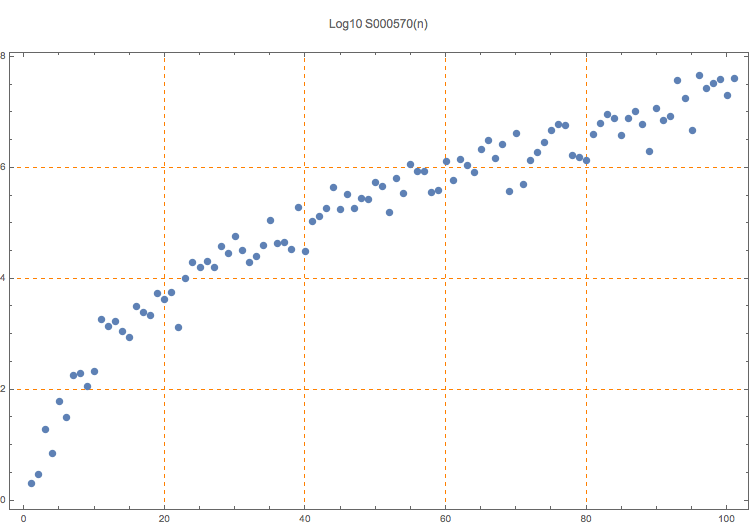First prime that begins a range of composite numbers containing n powers of numbers.
2, 3, 19, 7, 61, 31, 181, 199, 113, 211, 1831, 1381, 1669, 1129, 887, 3137, 2477, 2179, 5351, 4297, 5591, 1327, 9973, 19333, 16141, 20809, 15683, 37907, 28229, 58831, 31907, 19609, 25471, 40289, 114493, 43331, 44293, 34061, 191353, 31397, 107377, 134513, 186481
0
Note that we accept any number (p*q*r*…)^k where p, q, r,… are distinct primes and k is any positive integer. Hence, 7 is here because 8, 9, and 10 are all such numbers. This sequence has many numbers in common with S000568. The paper by Maier and Rassias does not contain this sequence.
T. D. Noe, Plot of 101 terms
T. D. Noe, Table of 101 terms
Helmut Maier and Michael Th. Rassias, Large gaps between consecutive prime numbers containing square-free numbers and perfect powers of prime numbers, arXiv 1504.01645 (Apr 7 2015)
(Mma) nn = 50; sf = Table[0, {nn}]; found = 0; n = 1; While[found < nn, n++; c = Count[Table[Length[Union[Transpose[FactorInteger[i]][[2]]]], {i, Prime[n] + 1, Prime[n + 1] - 1}], 1]; If[0 < c <= nn && sf[[c]] == 0, sf[[c]] = n; found++]]; Join[{2}, Prime[sf]]
Cf. S000568.
nonn,hard
T. D. Noe, Apr 10 2015
